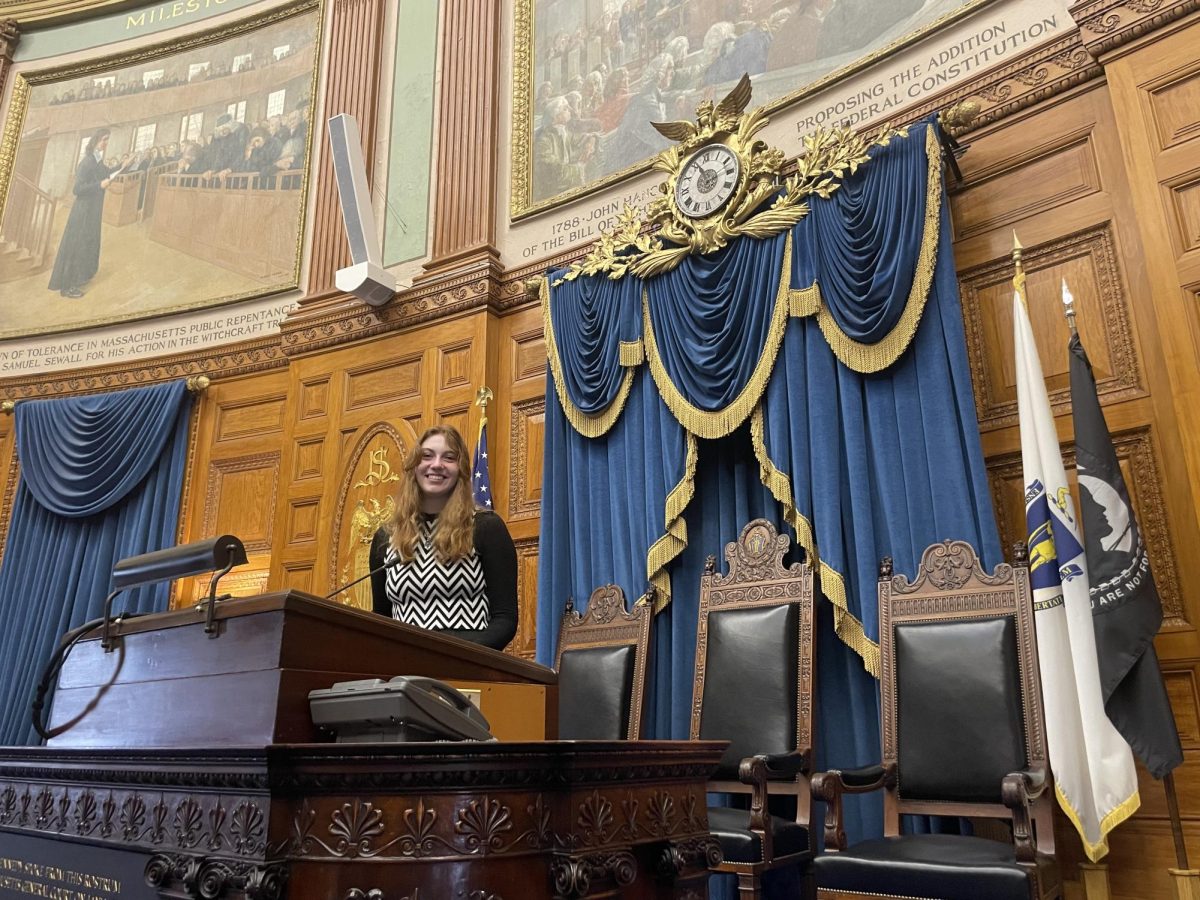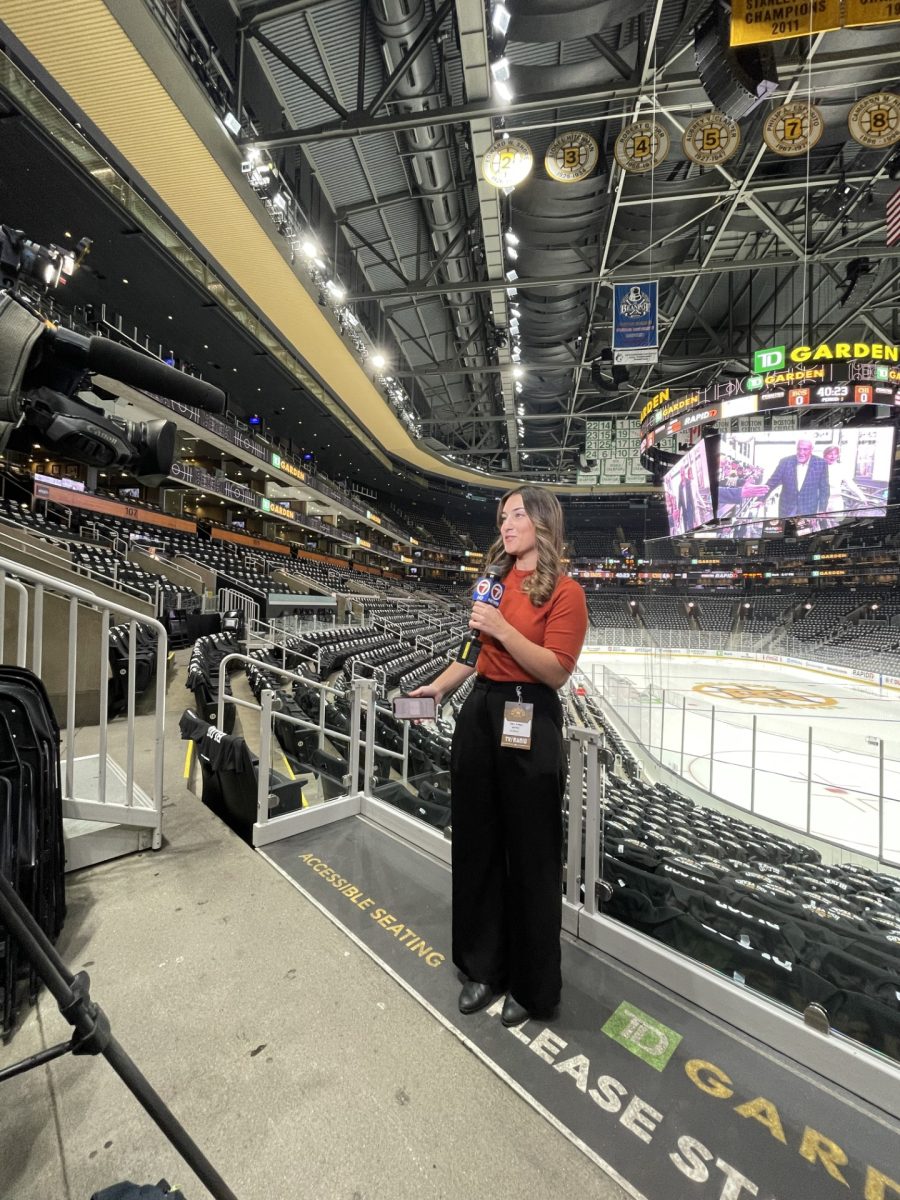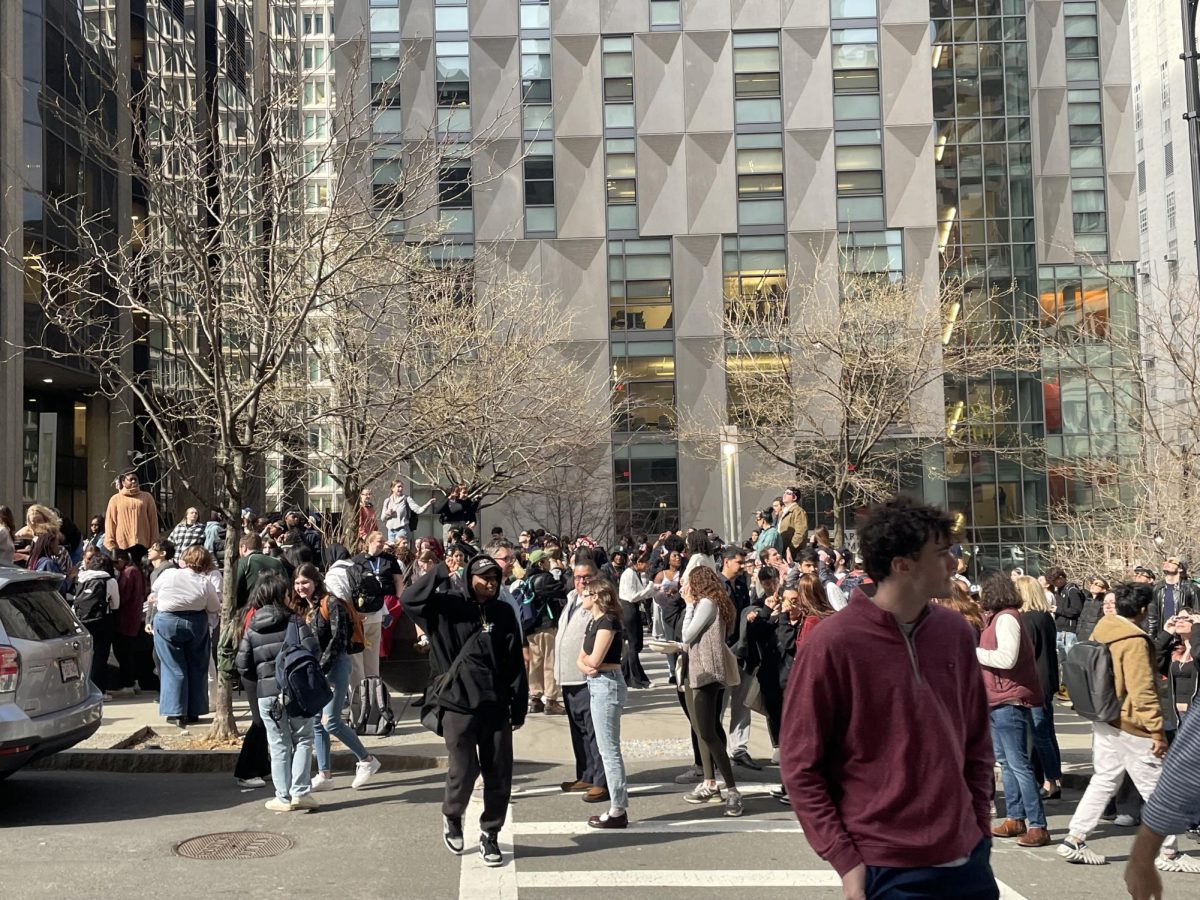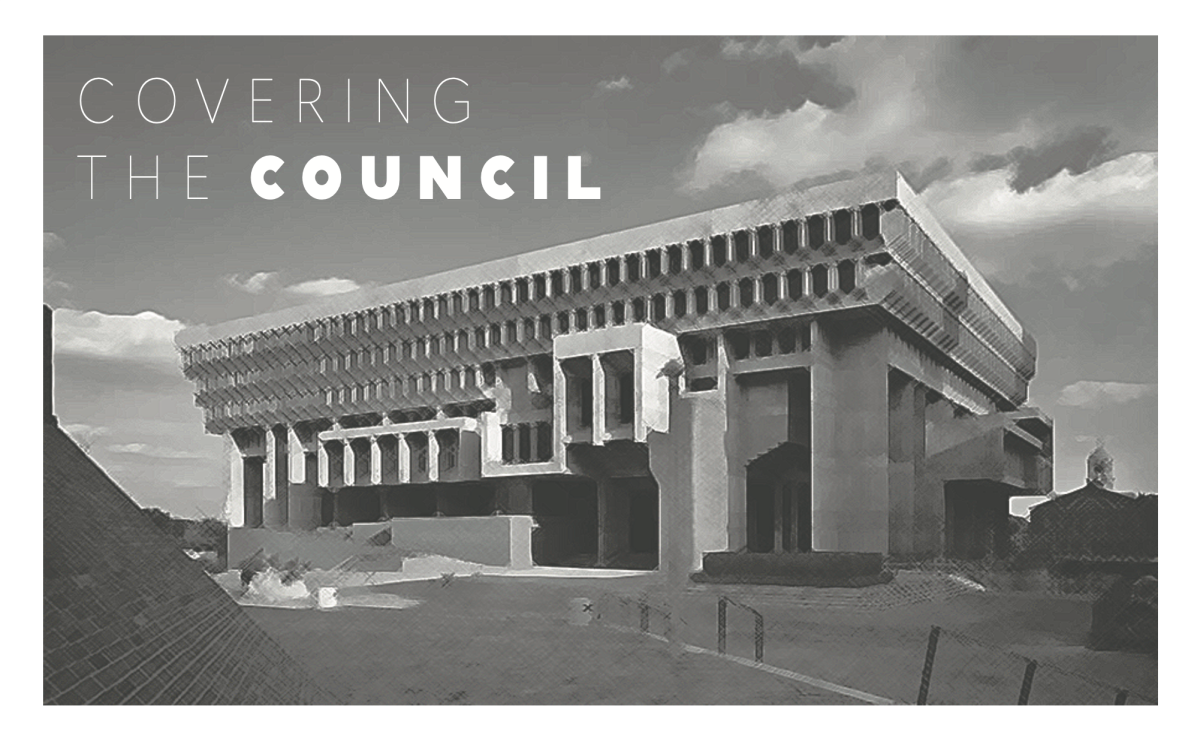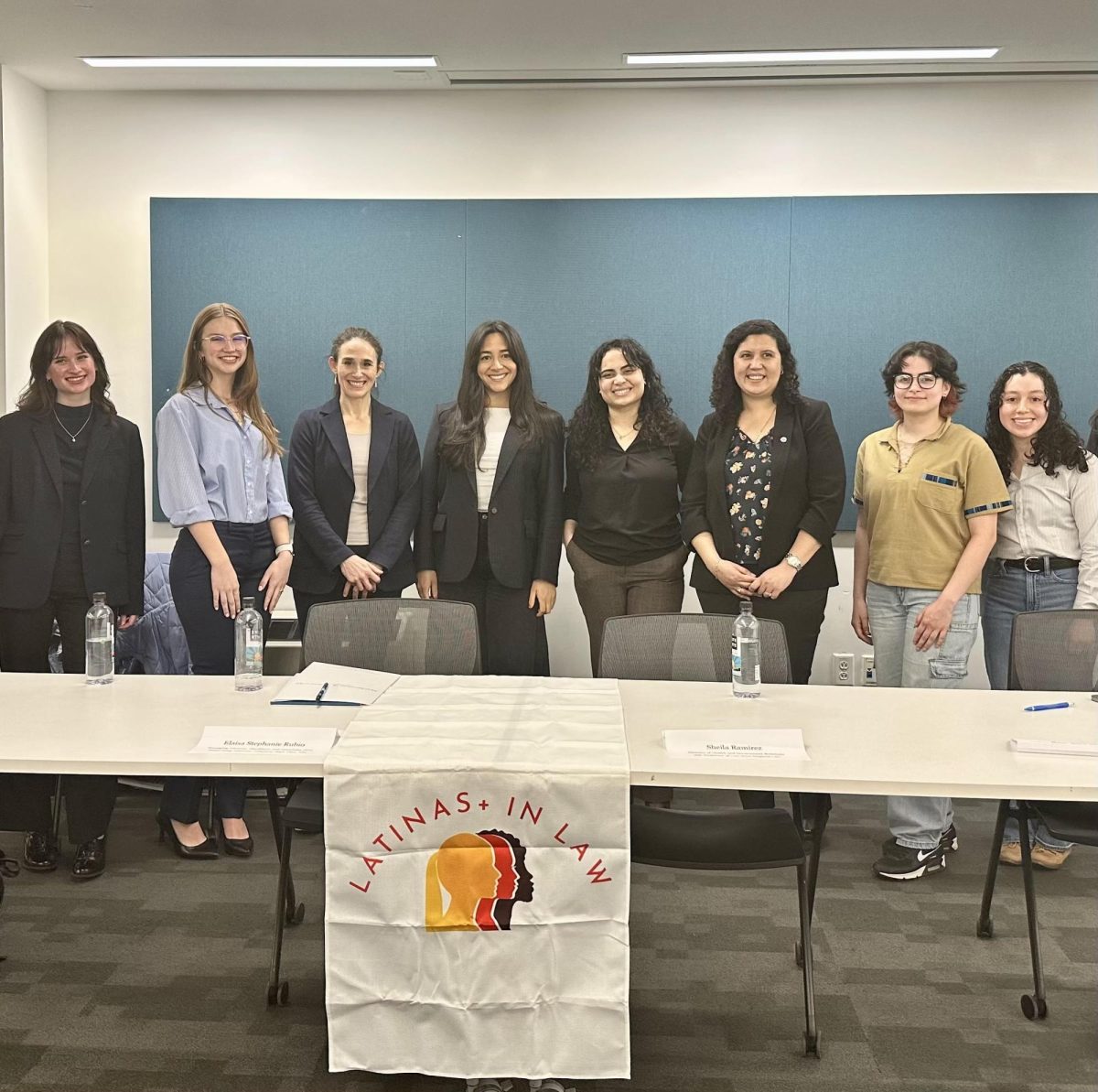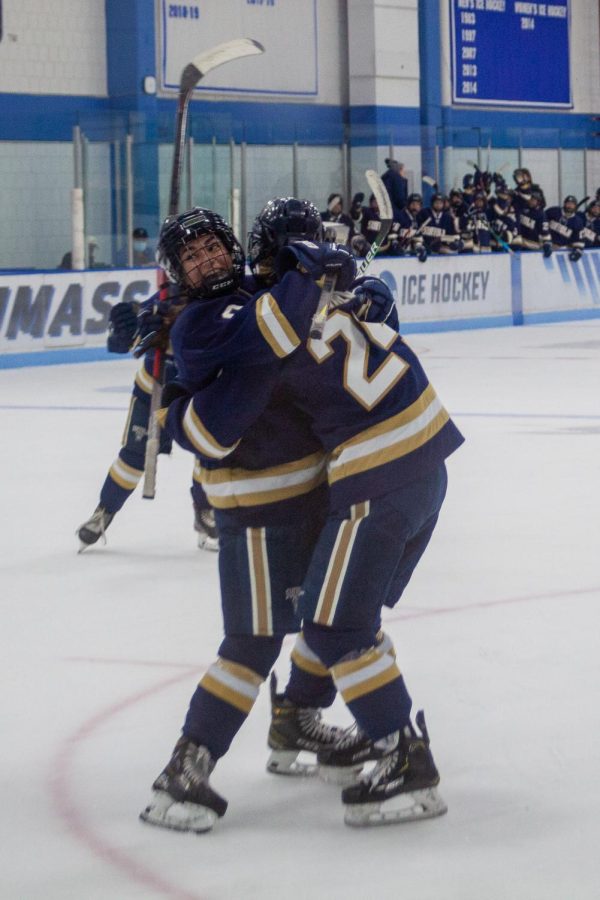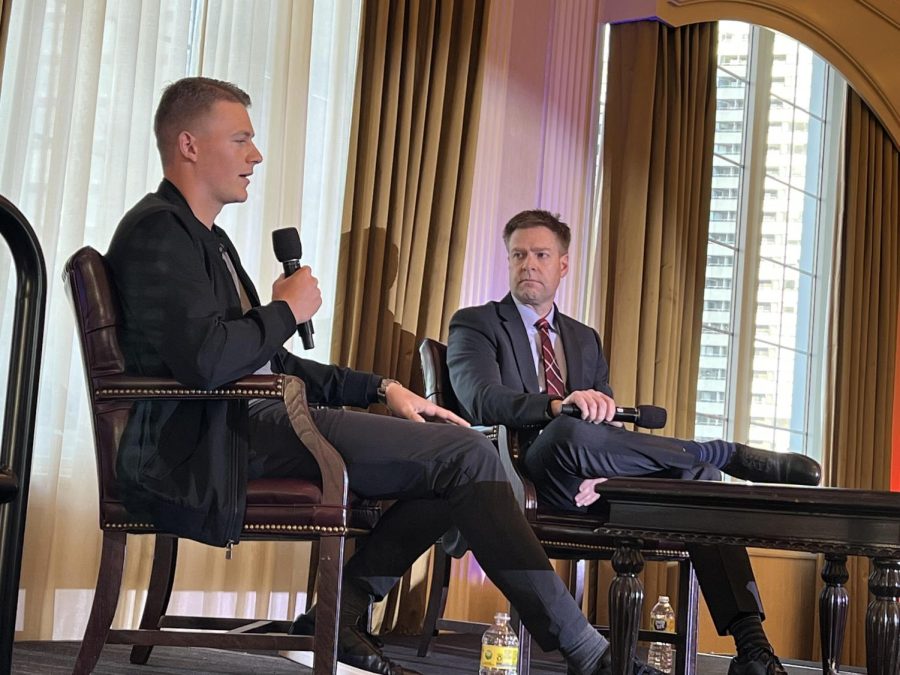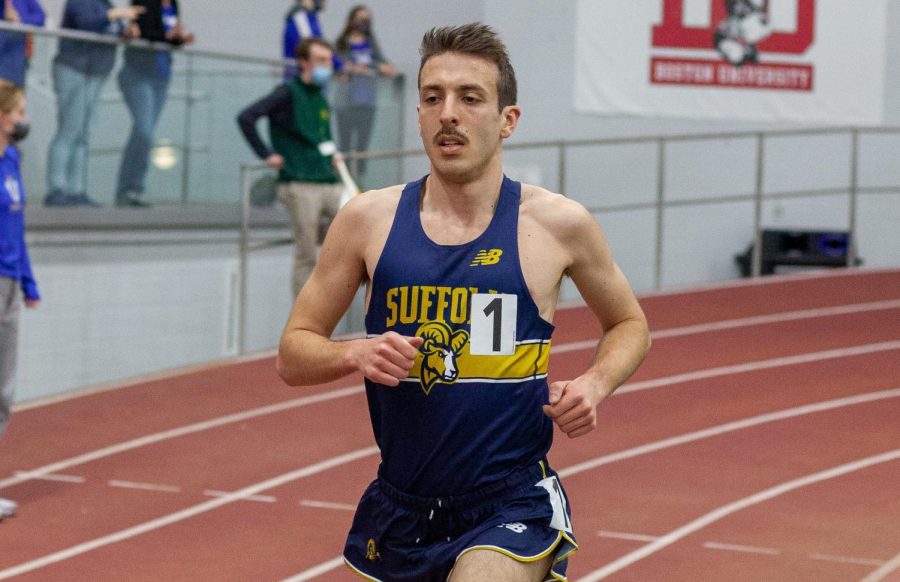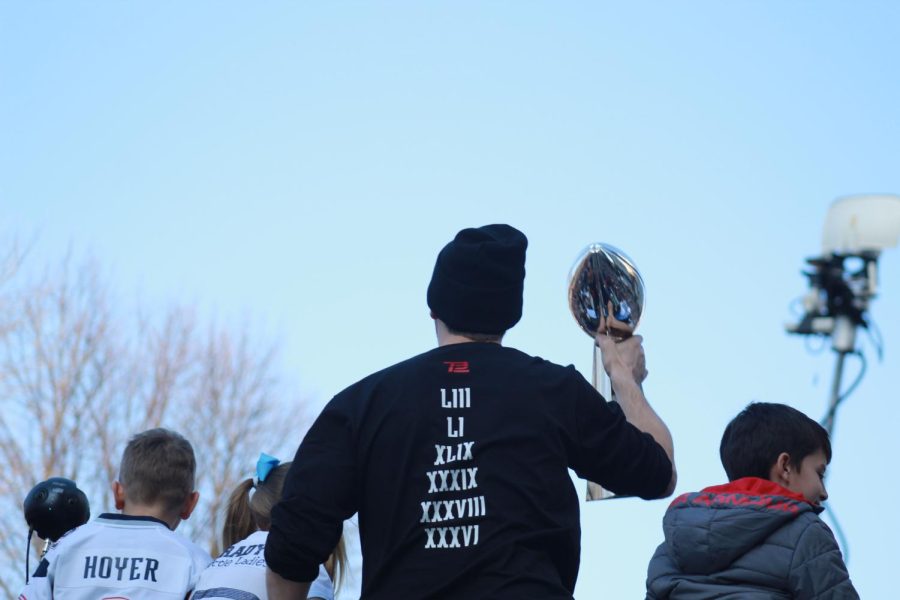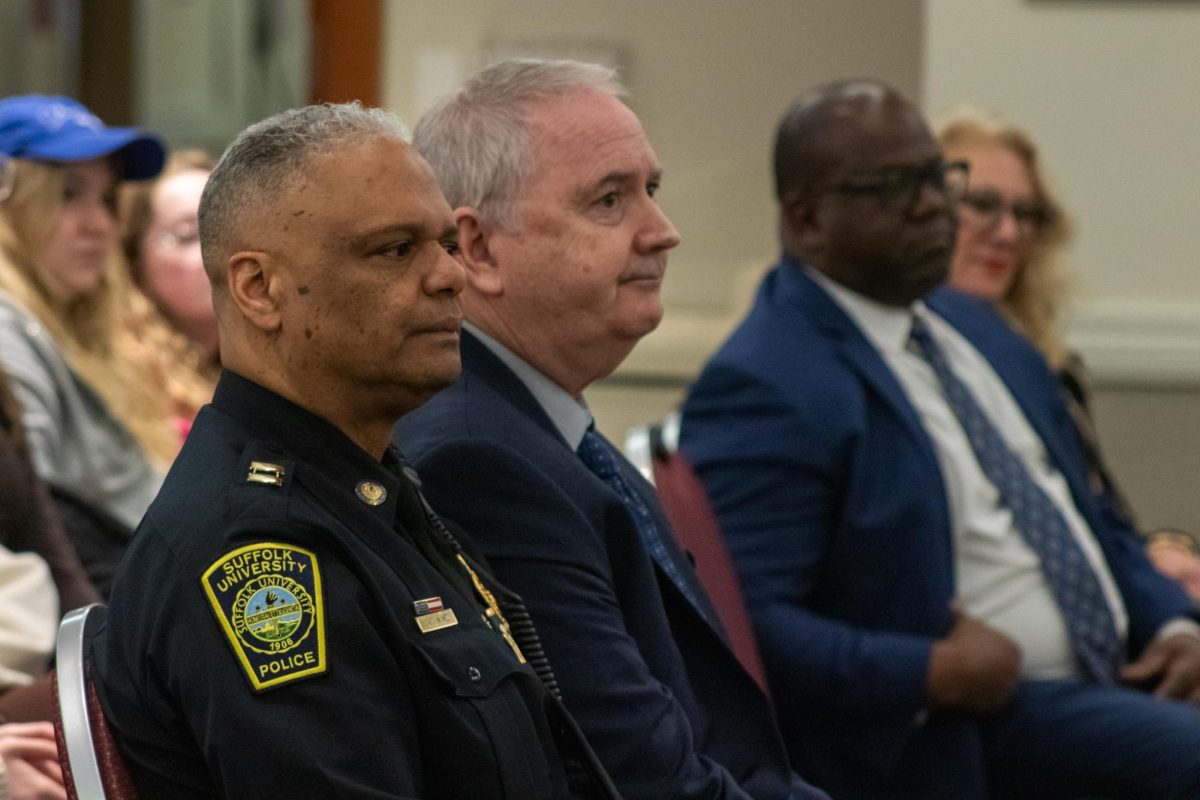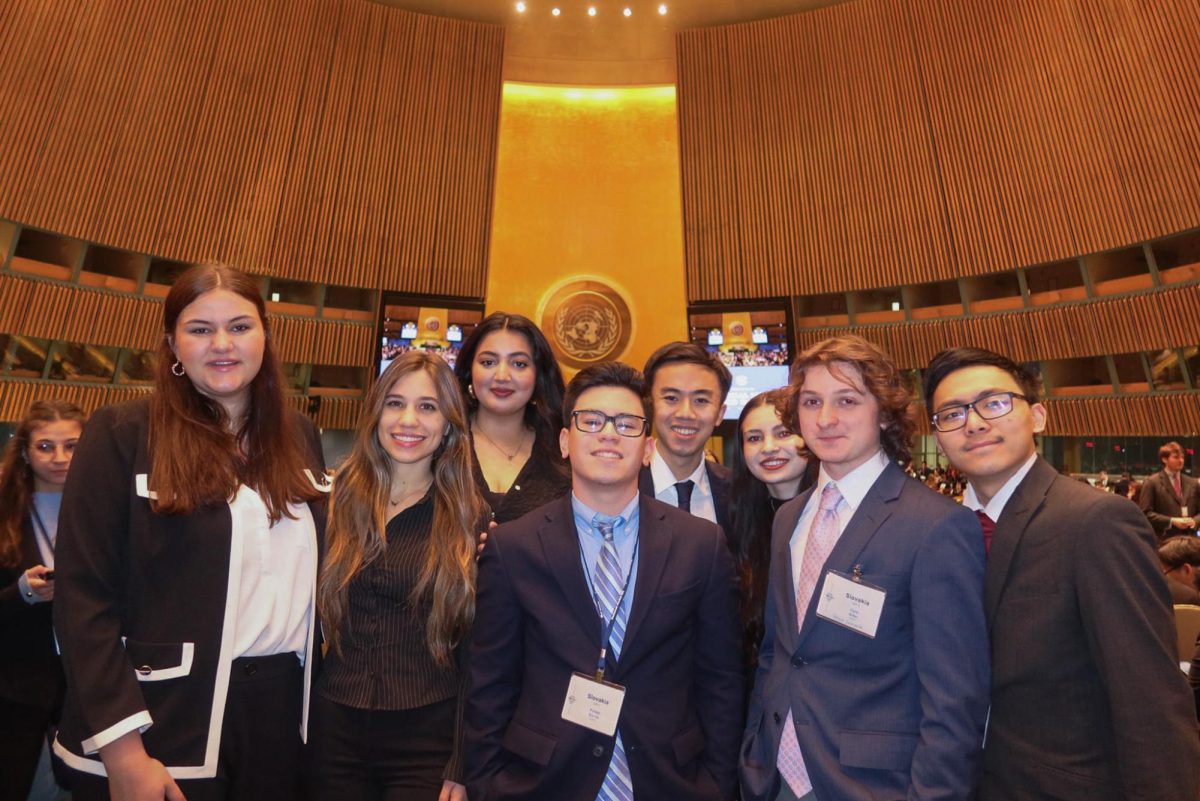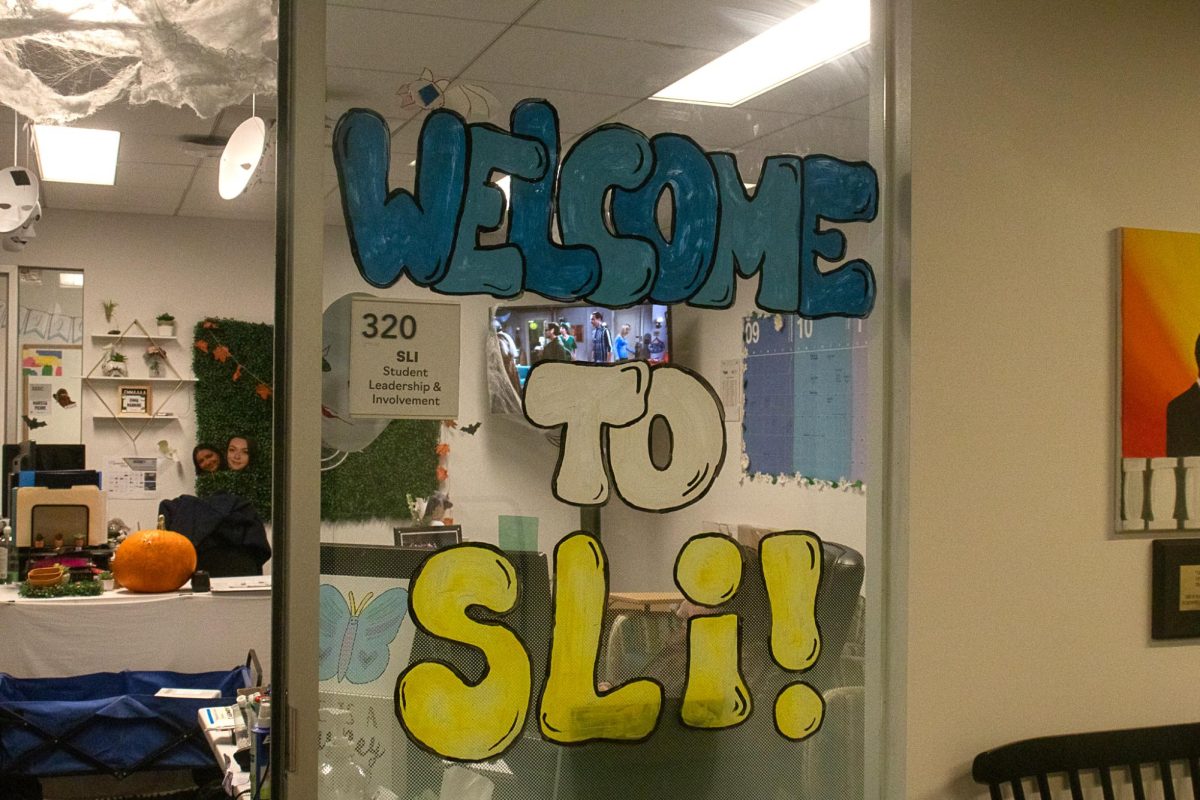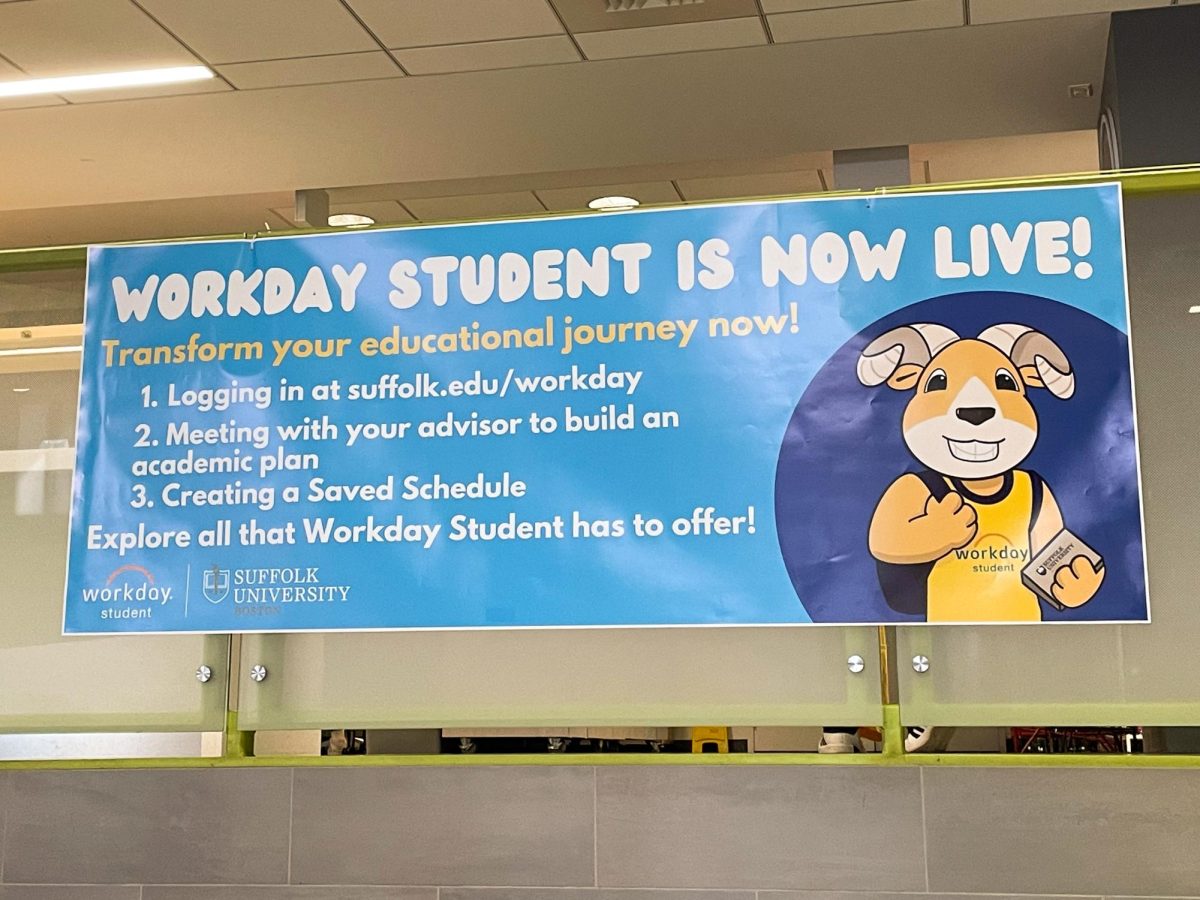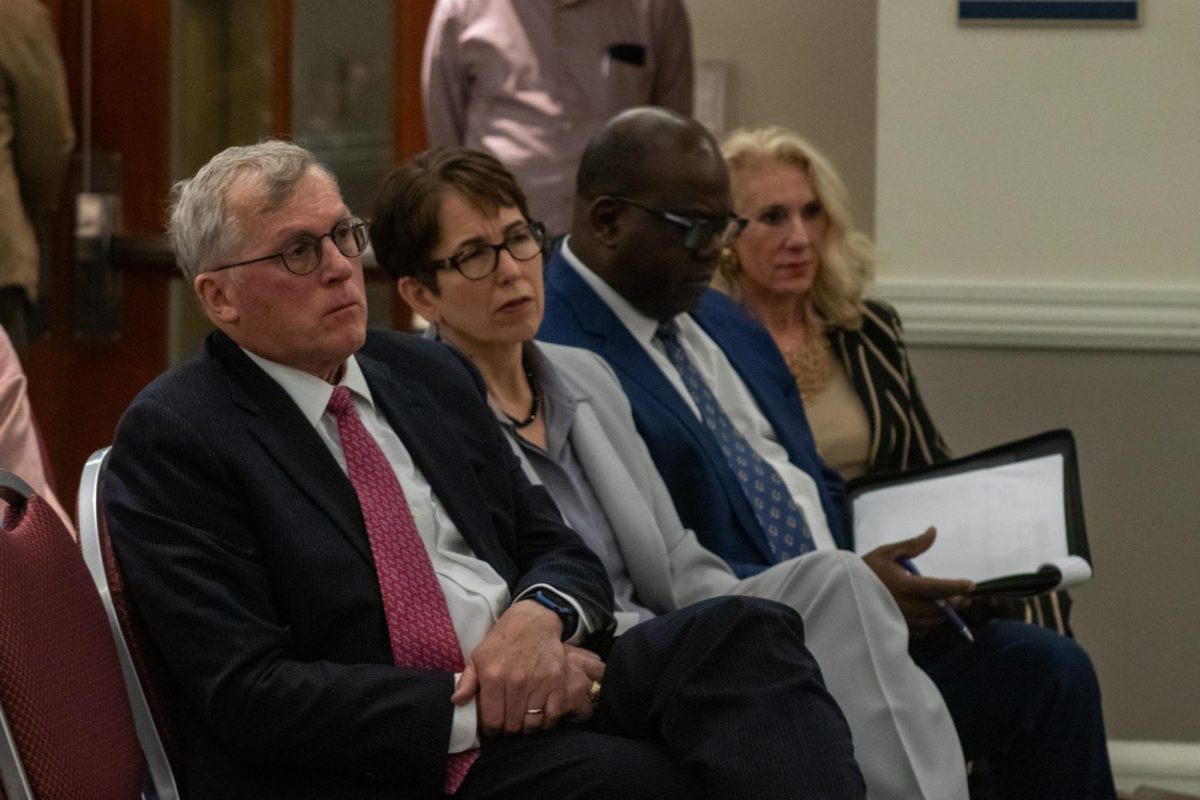By: Ally Thibault and Melissa Hanson
An eclectic group of Boston’s community filled Suffolk University’s Modern Theatre for the only mayoral forum to feature all 12 candidates as they faced off in a live televised debate.
The mayoral hopefuls fielded questions on hot topics at the Monday evening event, while public figures, students, and Suffolk administrators watched and listened just 15 days before the city’s preliminary election.
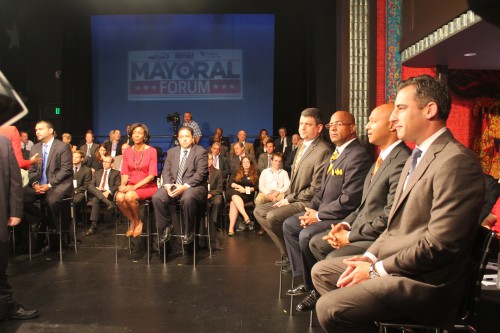
(Photos by Ally Thibault)
“It was fascinating,” Suffolk University President James McCarthy said of having the debate on campus, “It was great to have the students asking questions.” He said the university plans to host at least one more mayoral forum on campus before the November election.
“I love the fact that students from Suffolk are involved in the decision,” State Representative Marty Walsh said to The Journal, “Students should get involved in this race, it’s about your future.”
Suffolk students had the chance to address their questions directly to the candidates, as they sought answers about everything from public transportation to crime prevention.
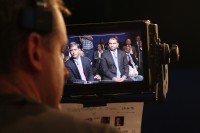
Sophomore Elainy Mata wanted the candidates to discuss how they would work to keep the drug known as molly, a form of ecstasy, off the city’s streets. While Charles Clemons, co-founder of TOUCH 106.1 FM, accidentally called Mata “Molly” in his response, all candidates agreed that more education was needed on the drug’s dangers.
Graduate student Shana Berry asked candidates if they would consider options to keep the MBTA subway trains running later for students and workers who need transport during off-hours. While candidates realized that such a deal couldn’t be struck for this fiscal year as the transportation bill has already been passed, City Councilor Mike Ross, Suffolk County District Attorney Dan Conley, and City Councilor At-Large Felix Arroyo all agreed that they would work to fund a 24-hour transit system for the city if elected.
The Journal caught up with Arroyo after the debate who reiterated the need for around the clock public transportation.
“It’s time for 24 hour service,” he said, “I cleaned tables to get myself through college, workers like that need late night T service.”
Suffolk freshman Don DeRosa aired concerns about safety in Boston in the wake of the bombing of the marathon, sparking a conversation of how to prevent crime.
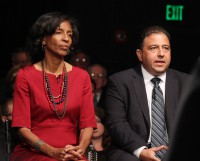
“Let’s not be afraid of technology,” said City Councilor Rob Consalvo. “We’ll use it, we’ll balance the privacy issues, but we’ll use it to keep our city safe.” Conley agreed with putting up more surveillance cameras since video footage helped to identify the marathon bombers.
A former senior advisor for Gov. Patrick and former cabinet member of Mayor Menino’s administration, Charlotte Golar Richie called the state of crime in Boston “a tale of two cities,” as crime disproportionately affects certain neighborhoods.
“We have to build relationships in our neighborhoods so people can watch out for each other. We have to make sure that people are engaged in keeping neighborhoods safe,” John Barros, a former School Committee member, said.
“The Police Department of 2014 should have different leadership,” said City Councilor Charles Yancey, who called for more diversity in the department and a renewed focus on community policing. Many other candidates also stressed creating a more diverse police force, with some even calling for the resignation of Commissioner Ed Davis.
Suffolk Student Government Association President Billy Cerullo was impressed by the turnout of students at the forum.
“I think it’s a testament to how engaged our university is,” Cerullo said, “And not just the government department, students from a variety of majors are here.”
While he is not a resident of Boston, Cerullo still thinks it is crucial to pay attention to the race.
“I walk these streets daily,” he said, “Students shouldn’t let whether or not they are a resident of the city or not decide if they care about the race.”
“A Suffolk University degree is highly respected in Boston,” Ross said, “Graduating from Suffolk Law was a huge part of my professional development.” The candidate also said he wants to “create more affordable housing and housing neighborhoods so students can stay here after graduation.”
Consalvo told The Journal that the Modern Theatre as a venue gave the race a “high profile” feel and that “the university setting really made it feel like it’s the most important thing going on–because it is.”
DEBATE HIGHLIGHTS:
At times throughout the 90-minute debate, candidates’ tempers flared as they barked over each others’ ideas. But, the forum was still able to cover a breadth of important topics. Right out of the gate, candidates split over the proposed casino project in East Boston.
“This is going to disproportionately affect our neighborhood, East Boston residents tell me,” City Councillor John Connolly said while arguing to hold an Eastie-only vote on the plan rather than a citywide vote. “East Boston residents will live with this decision unlike anyone else.”
Candidate Bill Walczak, founder of Codman Square Health Center and other non-profit endeavors in the city, and Conley disagreed sharply, campaigning on opening the decision up to all
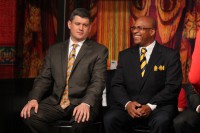
city residents. “This will affect our whole city and culture,” Conley claimed, “We need a vigorous and robust public debate about whether this is where we want to go.”
Walczak took on the issue more aggressively, calling a casino in Boston “a public health disaster.” Golar Richie, jumped on Walczak’s comment proclaiming that “guns on the streets is a public health issue.” She proposed using the millions of dollars in annual profits the casino is expected to funnel to the city to fund crime prevention in the city.
The state of Boston Public Schools was raised as a priority issue for many candidates. “Parents don’t play politics with their kids’ education,” said Conley, whose children do not attend public schools.
“I am the son, the husband and the brother of Boston public school teachers. I am deeply invested in the state of our Boston public schools. To me, the real question is who has the best plan to close the achievement gap,” Arroyo said.
Walsh, known for his work with unions, proclaimed himself to be “the person who can negotiate with unions before deals go to arbitration.” When asked about whether he thinks his connection to unions and the money his campaign has received from them should make voters wary, Consalvo was eager to weigh in first. Echoing sentiments that he has been campaigning on for months, Consalvo asserted, “outside special interests should not be influencing our race.”
David Wyatt, the only republican candidate in the race, barely spoke at the forum while the other candidates were often fighting for more airtime. Wyatt explained that he was running to give voters a non-democratic party options, highlighting his pro-life stance.
“My number one priority is education and the ability to be gainfully employed,” he said.
Suffolk students who are not registered already in the city of Boston will not be eligible to vote in the preliminary election on Sept. 24 that will narrow the field from 12 candidates down to two. There is still time to register to vote on Nov. 3 to decide who will ultimately become mayor. Information on how to register or where your district polling place is can be found here. Remember, you can register to vote at a dorm address or apartment address within the city limits.



